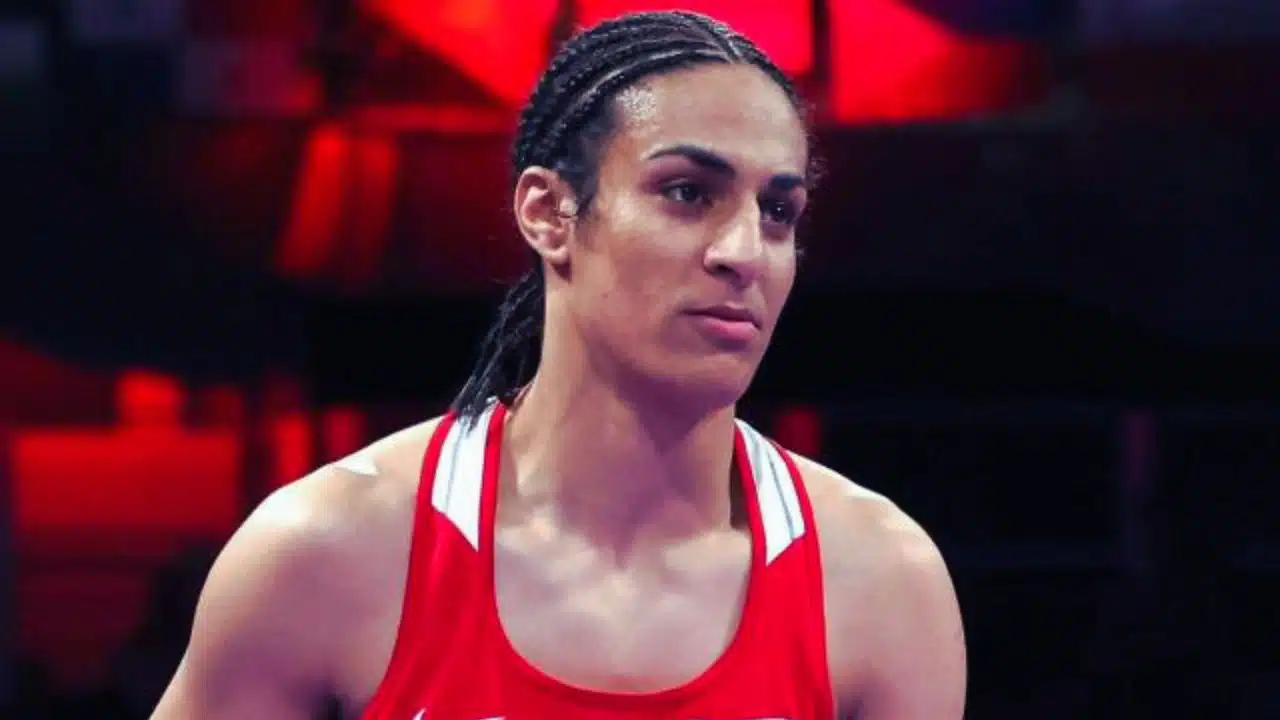Imane Khelif, an Algerian boxer who recently achieved a milestone victory with a gold medal at the 2024 Paris Olympics, is now embroiled in an intense gender eligibility debate. Leaked medical reports have emerged that allegedly “confirm” Khelif as genetically male, challenging her eligibility to participate in female boxing categories. This news has quickly circulated across media outlets and social platforms, intensifying scrutiny around Khelif’s participation in women’s sports and triggering wider debates on gender identity and fairness in athletic competition.
Medical Report Findings and Allegations
A report obtained by French journalist Djaffar Ait Aoudia claims that Khelif has a rare genetic condition known as 5-alpha reductase deficiency, which impacts sexual development. This condition, affecting enzyme production related to male hormones, can lead to ambiguous genitalia and limited development of typically male secondary characteristics. According to the leaked report, Khelif’s anatomy includes internal testicles and an XY chromosome makeup, characteristics usually associated with males. The report also noted the absence of a uterus and suggested a micropenis, further fueling debate on her eligibility in female competitions. The leaked document proposes that Khelif consider surgical and hormonal treatments to align her physical characteristics with her self-identified female gender.
Understanding 5-Alpha Reductase Deficiency and Its Implications
5-alpha reductase deficiency is a genetic condition that affects how the body processes male hormones, particularly testosterone. Individuals with this deficiency often have an XY chromosome makeup and may exhibit ambiguous genitalia or less pronounced male physical traits at birth. They may be identified as female at birth or develop secondary male traits later, especially during puberty. This condition, while rare, can result in physical traits that challenge conventional male or female classifications, creating complexities for sports eligibility and other gender-based distinctions.
The condition has made Khelif the subject of heightened scrutiny, with critics arguing that her physical attributes could provide her with advantages over competitors in women’s boxing. However, supporters point out that gender and eligibility policies in sports should adapt to the realities of individuals with differences in sexual development (DSD), arguing for inclusivity and respect for each athlete’s gender identity.
Past Controversies in Women’s Boxing
This is not the first time Khelif’s eligibility has been questioned. She faced similar criticism in 2023 when she was barred from the World Championships after failing a gender eligibility test. Despite these challenges, Khelif’s participation in the Paris Olympics and her victory in the 66kg women’s category reignited conversations around the issue. During the Games, Italian boxer Angela Carini notably withdrew from a match against Khelif after receiving several blows, leading some to speculate about the potential physical advantages Khelif might possess. This withdrawal further intensified discussions around her participation, with public figures and athletes weighing in on the ethics and fairness of her involvement in the women’s boxing category.
International Boxing Association and Criticism of the IOC
The International Boxing Association (IBA) has been vocal in its criticism of the International Olympic Committee (IOC) regarding Khelif’s participation. The IBA released statements condemning the IOC’s stance, demanding that IOC President Thomas Bach apologize to female boxers who, they claim, were “beaten and abused” by Khelif due to what they argue is an unfair advantage. The IBA’s criticism has fueled calls for clearer, more consistent gender eligibility regulations, especially as more athletes with hyperandrogenism or DSD seek to compete in women’s sports. The IBA’s stance underscores ongoing tensions between sports governing bodies over how to address gender identity, fairness, and inclusivity.
Khelif’s Response to the Controversy
Khelif has consistently defended her right to compete in women’s boxing, asserting, “I was born as a woman, I live as a woman, and I am qualified.” Khelif argues that her identity as a female should not be questioned based solely on genetic or physiological conditions that she cannot control. She has maintained that her achievements and eligibility should be respected, emphasizing that she meets the requirements set forth by her athletic governing bodies. In response to widespread criticism and online harassment, Khelif has filed a legal complaint in France, alleging aggravated cyber-harassment and describing the backlash against her as a “misogynistic, racist, and sexist campaign.”
Broader Implications for Gender Eligibility in Sports
Khelif’s case has become a focal point for discussions around gender eligibility, particularly in relation to athletes with differences in sexual development. The controversy has exposed gaps in current sports policies regarding gender identity and hyperandrogenism, leading to public outcry for more transparent, fair, and inclusive guidelines. The IOC and other sports organizations now face mounting pressure to establish clear eligibility criteria that balance fairness with respect for athletes’ rights and identities.
The debate surrounding Khelif underscores the complexities involved in determining gender eligibility in sports, as physical, genetic, and social factors intersect in ways that challenge traditional classifications. For now, Khelif’s achievements in the Paris Olympics stand as a testament to her skill and determination, even as the broader sports community grapples with the future of gender inclusivity in athletics. The ongoing scrutiny surrounding her eligibility is likely to push sports organizations worldwide to reevaluate and refine their policies on gender, hoping to address both fairness and inclusivity for all athletes.






































